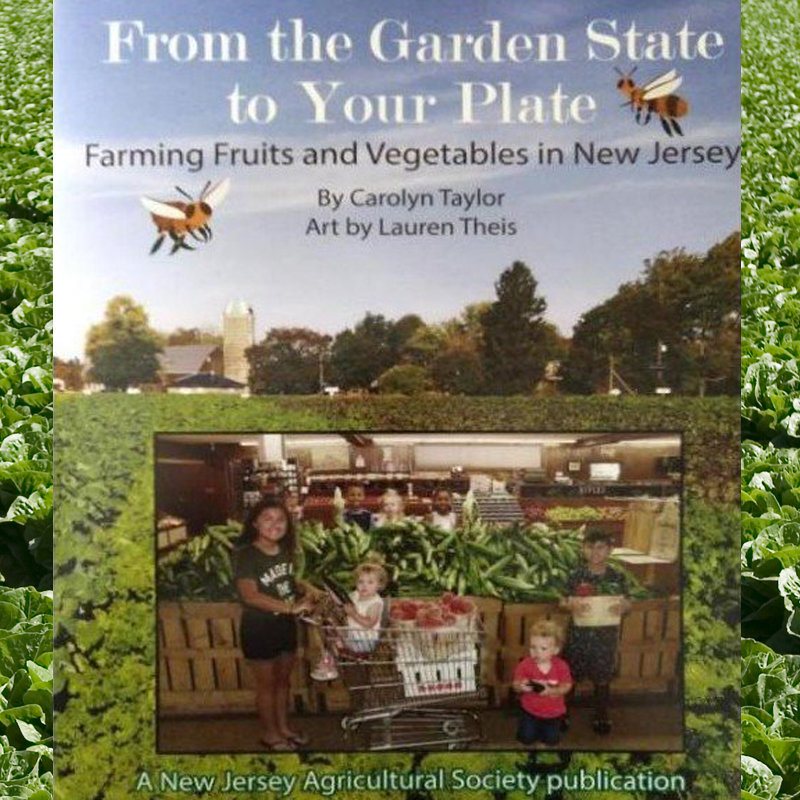NJ AITC Lessons
Farming in New Jersey

Agriculture is New Jersey's third largest industry. There are 9,000 farms in the state that cover 720,000 acres. More than 100 different fruits and vegetables are grown here.
Our book From the Garden State to Your Plate, Farming Fruits and Vegetables in New Jersey is designed to teach children about New Jersey agriculture and its top 10 crops:
 Blueberries
Blueberries Tomatoes
Tomatoes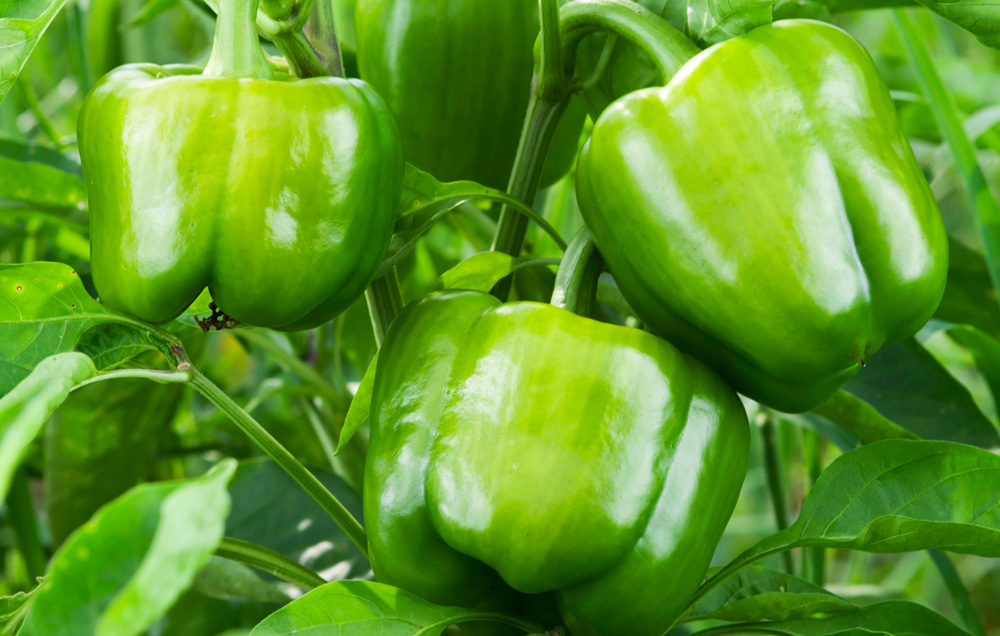 Bell Peppers
Bell Peppers Peaches
Peaches Cranberries
Cranberries Sweet Corn
Sweet Corn Soybeans
Soybeans Squash
Squash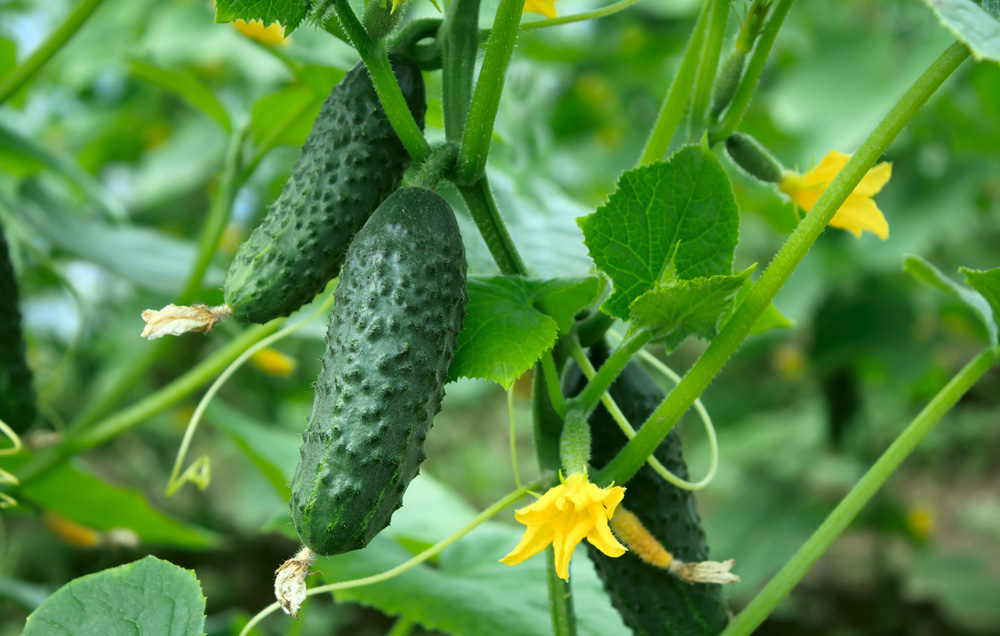 Cucumbers
Cucumbers Spinach
Spinach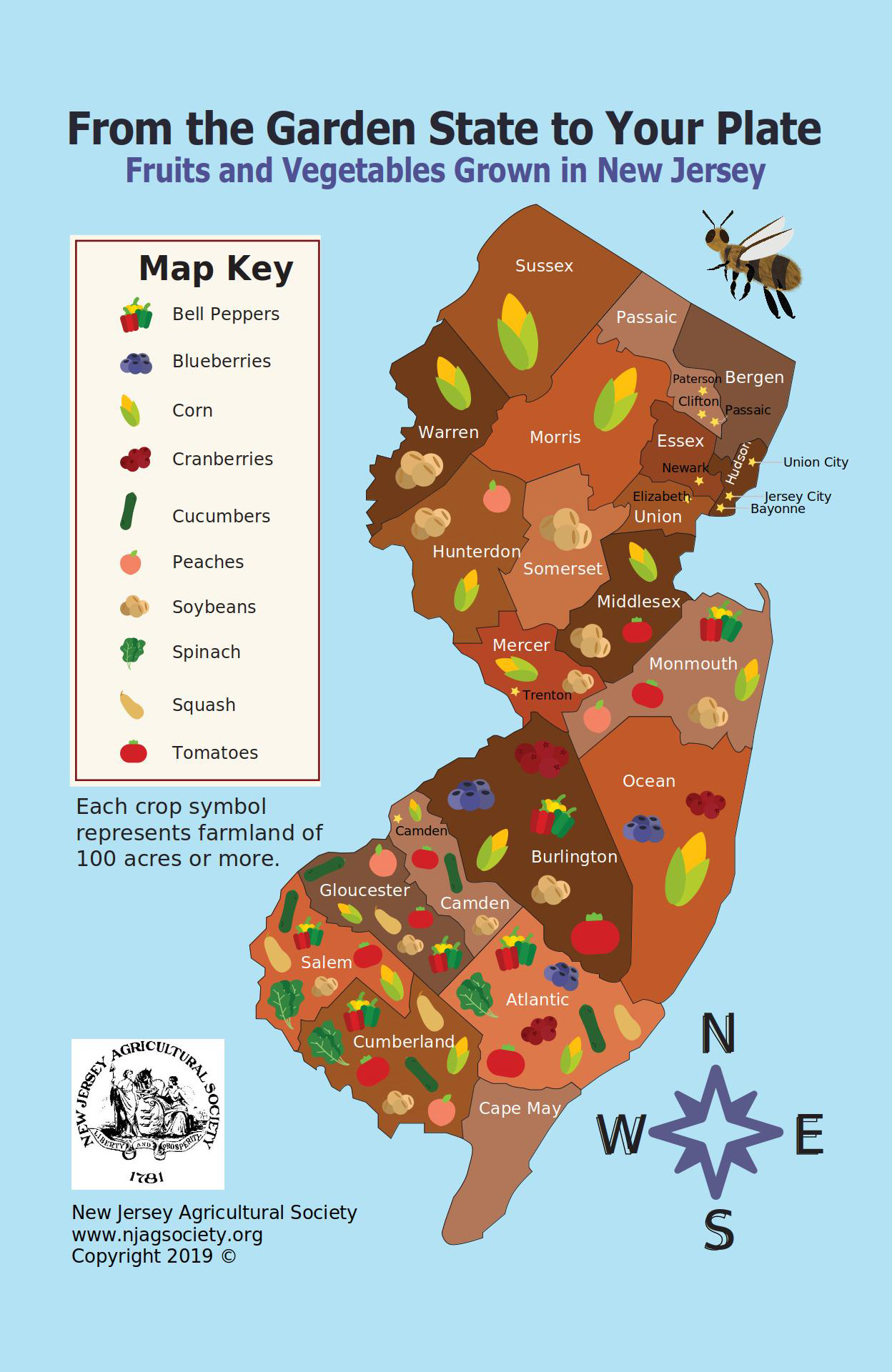
Below you will find the digital copy of the book From the Garden State to Your Plate, as well as many lessons that teach about the top 10 crops grown in New Jersey.
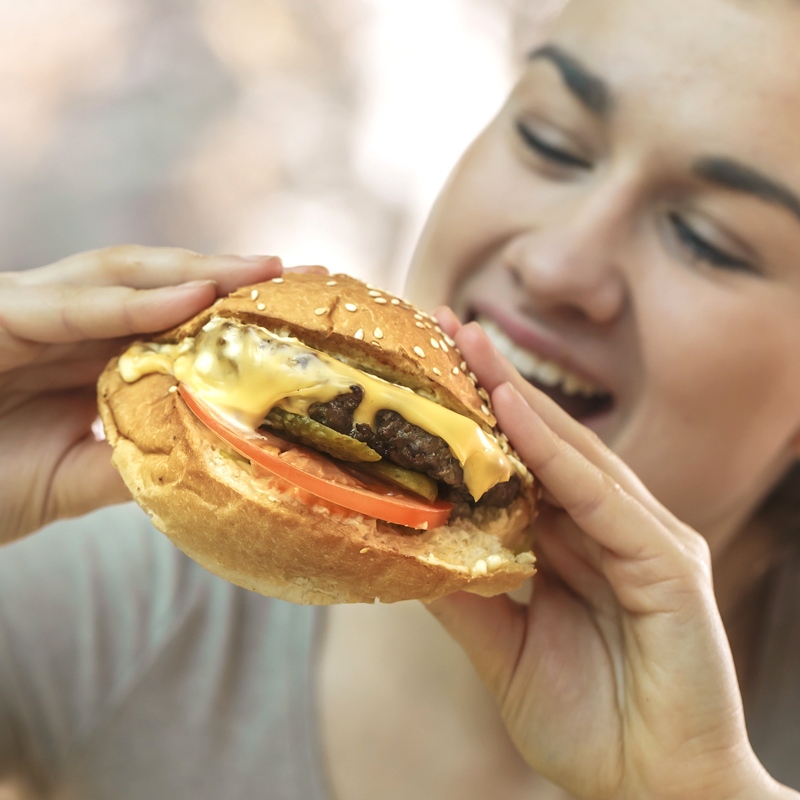
Have A Cheeseburger and See New Jersey
Students travel throughout New Jersey to see how the ingredients of a cheesesburger are grown.
Tomatoes

Are They a Fruit or a Vegetable?
New Jersey is known for its tomatoes, which are the state's second largest crop. Jersey tomatoes are famous because unlike tomatoes that are shipped across the country, New Jersey tomatoes are grown for their taste, not their transportability.
Bell Peppers

Bell Peppers Take Over the World
Students use their addition and multiplication skills to answer the question "could vegetables take over the world?"
Cranberries
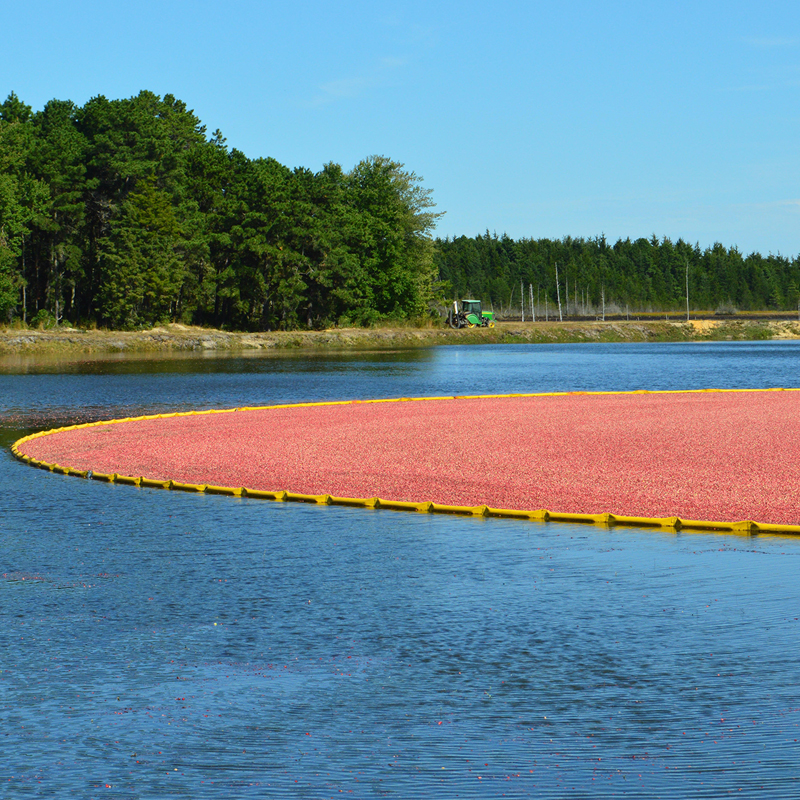
Why Do Cranberries Float?
Students hypothesize about why cranberries and other things float.

Cranberry Graphing
Students learn about one of New Jersey's biggest crops.
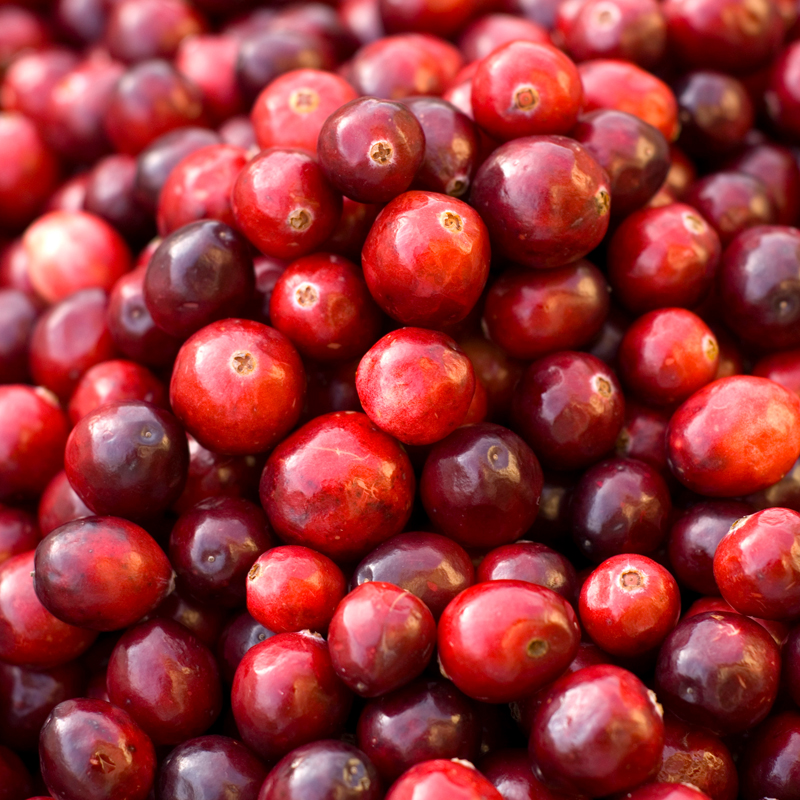
The Cranberry Bounce Test
students will test for the bounciness of a group of cranberries, estimating, observing, and separating the cranberries, and using fractions to record results.
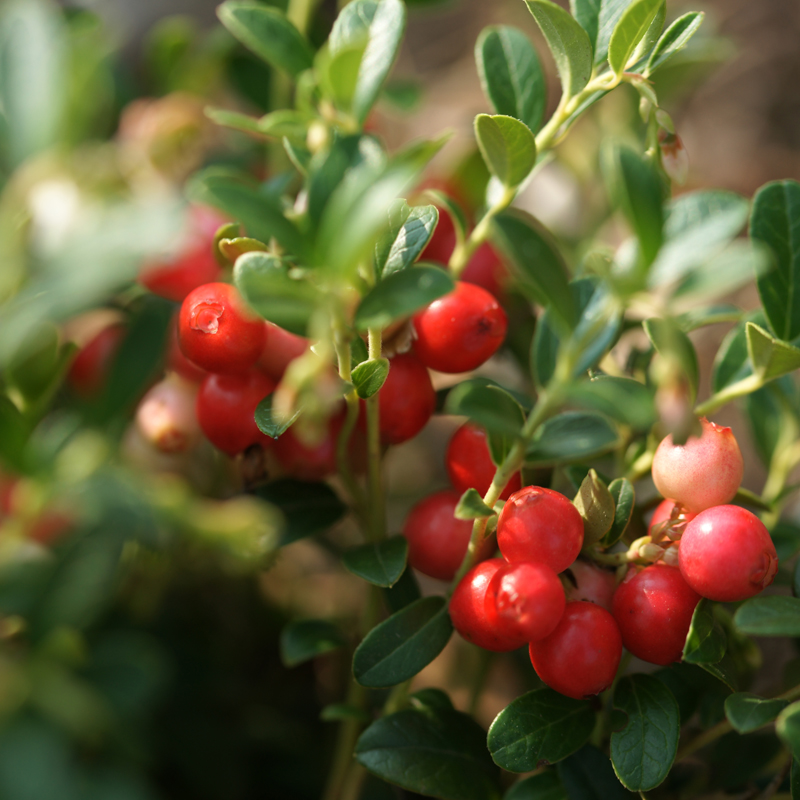
Make a Cranberry Catapult
students work in small groups to create a simple catapult, measure the distances their catapult can fling a cranberry, and graph and compare results.
Sweet Corn
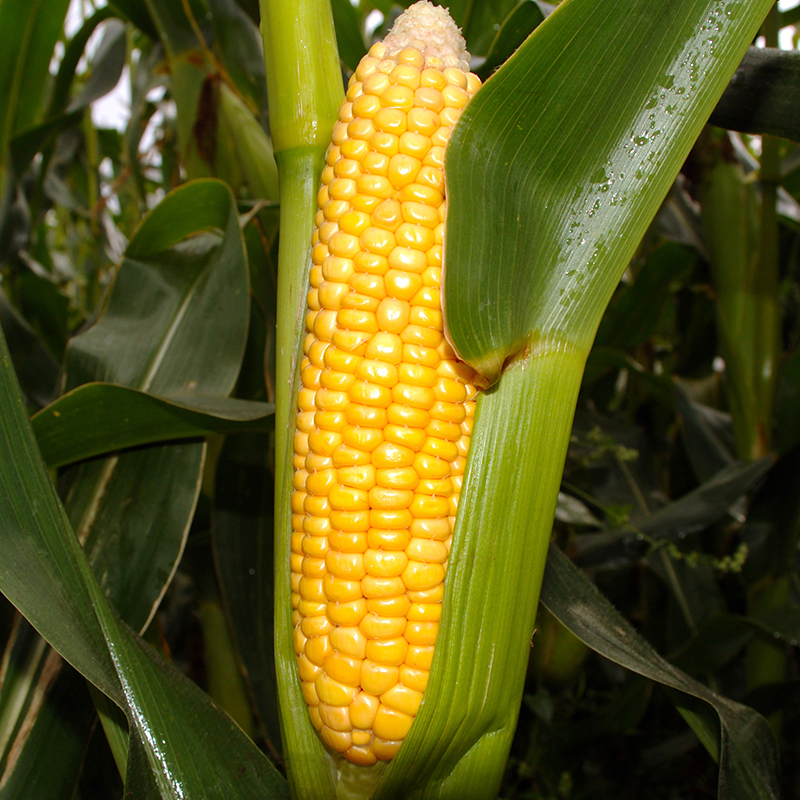
Biodegradable Plastic from Corn
In this fun activity, you make plastic from corn.
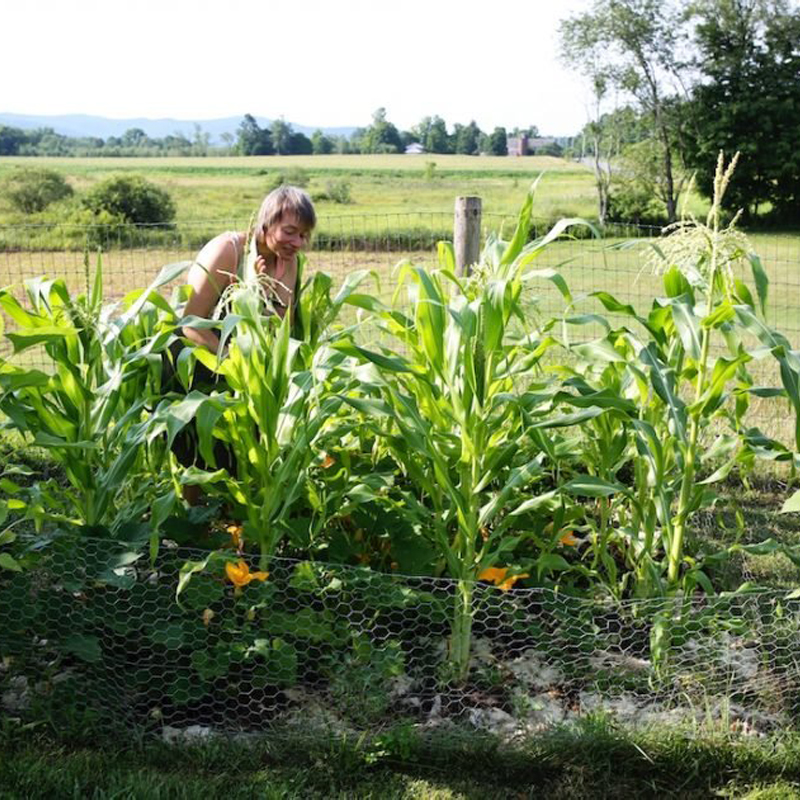
The Three Sisters – Native American Gardening
Learn how the New Jersey Lenni Lenape planted their gardens.
Soybeans
Squash

Pumpkin Circle
From seed to pumpkin to seed again, learn the cycle of plant life.

Pumpkins in the Primary Classroom
So many ways to use a pumpkin to teach math and every subject.

Disappearing Pumpkins Grades PreK-2
Use an old Jack O'Lantern for a decomposition experiment.

Disappearing Pumpkins Grades 3-5
Use an old Jack O'Lantern for a decomposition experiment.
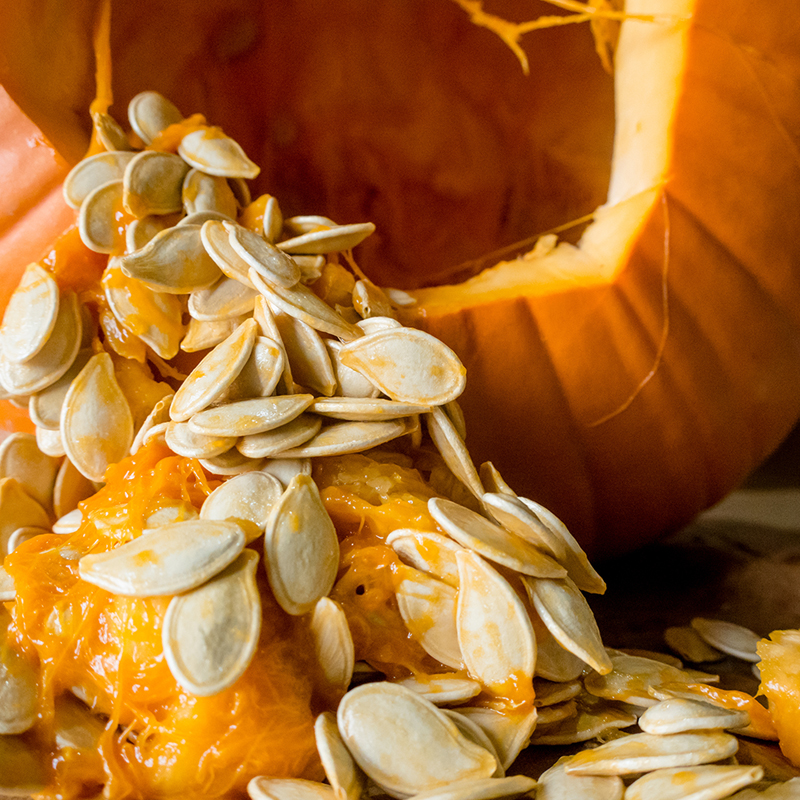
How Many Seeds in a Pumpkin?
Children of every age love making Jack-O'-Lanterns. Older primary students can combine this Halloween tradition with a lesson in estimation.
Spinach

Spinach – A Cool-Weather Veggie
Students learn about the spinach life cycle, when spinach is planted and harvest, and the nutritional value of this leafy green vegetable.

